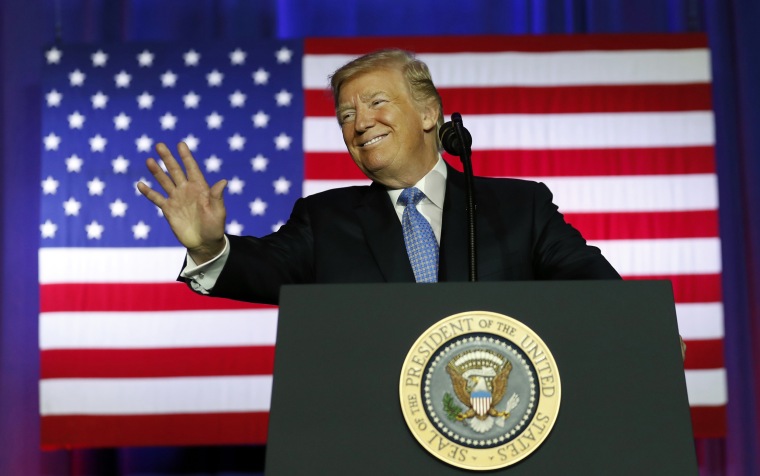Corporate America is still pinning its hopes on the GOP’s promise of lower corporate taxes, but two new surveys indicate that business leaders’ patience is growing thin with the Trump administration and Congressional legislative gridlock.
According to the most recent survey from the National Association for Business Economics, nearly half of forecasters surveyed said the balance of economic risk is more negative than positive, a jump of 12 percentage points from last quarter, while the number who take a positive view fell by 17 percentage points.
“We saw the confidence index for both large and small businesses jump right after the election,” said Rich Wobbekind, a NABE Outlook Survey analyst. He added that early hopes for regulatory rollbacks have been borne out, but tax cuts — a more pressing issue — are still up in the air.
“I think there was a lot of expectation after the election and early in the Trump administration that there would be action on tax reform, which is certainly something businesses care about,” said Chad Stone, chief economist at the Center on Budget and Policy Priorities.
“The longer it takes for policies to actually happen, the more skeptical forecasters are likely to be,” Wobbekind said.
Losing the Faith?
The NABE’s 47 professional forecasters who make up its panel aren’t the only ones feeling skeptical. Deloitte’s quarterly CFO Signals survey found that a key metric representing net optimism among U.S.-based CFOs dropped sharply since last quarter, and legislative gridlock was a big reason why.
“In particular, CFOs voiced growing concerns about the U.S. government’s ability to provide policy clarity and/or reforms,” the report accompanying the survey said, with a lack of direction on taxes and trade especially troubling.
The longer the gridlock drags on, the more a state of inaction will impact the business outlook.
“In the aftermath of the U.S. presidential election, CFOs appeared very optimistic — with that quarter’s survey registering the sharpest uptick in sentiment in its seven-year history,” said Greg Dickinson, managing director of the North American CFO Survey at Deloitte, via email. In addition to worry about geopolitical strife and finding and retaining good workers, CFOs are seeking — and, so far, not finding — specifics on what the Trump administration or Congress plan to do.
“It may be the case that their optimism has become more tempered, and they may be concerned that continued lack of clarity might restrain consumer and business investment that they were hoping might bolster economic growth,” Dickinson said.
The Great Tax Debate
Gary Burtless, an economist at the Brookings Institution, agreed that the prospect of a GOP-dominant Washington might have raised business optimism, but without a win on taxes, there could be a pullback. “If businesses and consumers lose faith that the future is going to be as stable as the past, then all kinds of behavior may set in to slow the recovery,” he said. “We could have less consumption from consumers, we could have less investment from business leaders.”
Global growth expectations were NABE respondents’ top cause for optimism, but as Wobbekind pointed out, “That’s out of the realm of policymakers in Washington [and] they haven’t seen those other upside things happen.”
Related: Trump's Tax Plan Impact Is a Mystery for the Middle Class — But Not for Trump Himself
The other two of the top three reasons for optimism NABE respondents gave are the prospect of corporate and individual tax cuts, although the number of business leaders who see those happening anytime soon is dwindling. The number of respondents who expect that individual tax cuts will be implemented by the end of 2018 dropped by 10 percentage points from last quarter; the number expecting corporate tax cuts in that same time frame fell by six percentage points.
“The survey panelists are still positive in general… but the percentage of panelists believing that would happen went down,” Wobbekind said, adding that the longer the gridlock drags on, the more a state of inaction will impact the business outlook.
“If nothing gets passed by the early part of 2018, then there’s going to be skepticism that it’s not going to happen at all.”
